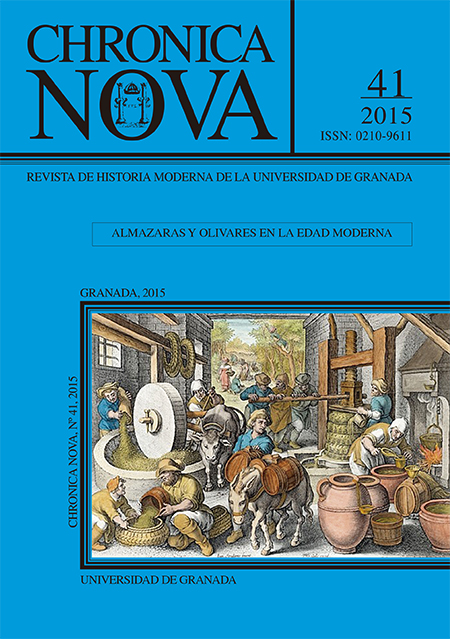Academic repression in Mallorca during the 18TH century: the Bishop Juan Díaz de la Guerra and the closure the school of Sapiencia in 1773
DOI:
https://doi.org/10.30827/cn.v0i41.1371Keywords:
Bishop, Church, School of Sapiencia, Mallorca, Lulism, IllustrationAbstract
This article analyzes the plan of closing Sapiencia, a school located in the city of Palma, during the bishopric of Juan diaz de la Guerra. Considered an important educational institution of the mallorcan clergy and strongly connected with the lulist phenomenon, Sapiencia had a considerable role in the social and cultural life of the island. The enlightened policy of Carlos III programmed by then great changes in all educational institutions, and used the figure of the Bishop to try to standardize the mallorcan academic system by eliminating those centres that do not adapt to the interests of the monarchy. Sapiencia will be, precisely, one of those schools. The following pages are intended to discuss the closure of the school and its consequences in the insular educational world from a renewed perspective and more global of the educational project of Juan diaz de la Guerra.
Downloads
Downloads
Published
How to Cite
Issue
Section
License
Nuestra revista se atiene a las recomendaciones para la implementación del Artículo 37 Difusión en Acceso Abierto de la Ley de la Ciencia, la Tecnología y la Innovación:
- Los/as autores/as cuyas contribuciones sean aceptadas para su publicación en esta revista conservarán el derecho no exclusivo de utilizar sus contribuciones con fines académicos, de investigación y educativos, incluyendo el auto-archivo o depósito de los artículos aceptados en repositorios institucionales o temáticos de acceso abierto de cualquier tipo en un plazo máximo de seis meses.
- Preferiblemente se permitirá el uso de la versión publicada de las contribuciones científicas, que estarán accesibles en abierto tan pronto como sea posible.
-
Que en caso de que el trabajo sea aprobado para su publicación, el/la autor/a autoriza de manera ilimitada en el tiempo a la entidad editora para que incluya dicho texto en Chronica Nova y pueda reproducirlo, editarlo, distribuirlo, exhibirlo y comunicarlo en el país y en el extranjero por medios impresos, electrónicos, CD, Internet o cualquier otro medio conocido o por conocer.






 ISSN-e: 2445-1908
ISSN-e: 2445-1908










